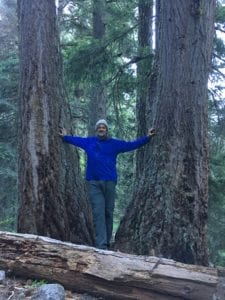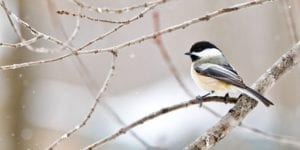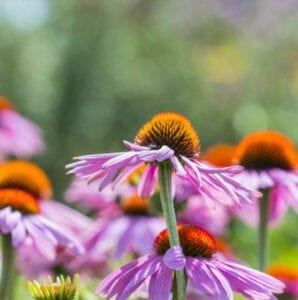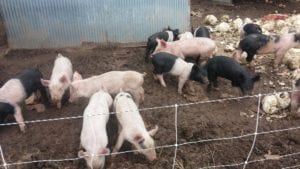Pay attention. be astonished. tell about it.
by Mike Schut, Farm Table Foundation
Mary Oliver’s poem “Sometimes” includes this stanza:
Instructions for living a life:
Pay Attention.
Be Astonished.
Tell About It.
 As these are some of the best instructions I have ever received, here I will “tell about it”—some of the things that have grabbed my attention and astonished me.
As these are some of the best instructions I have ever received, here I will “tell about it”—some of the things that have grabbed my attention and astonished me.
That the largest single organism (by mass) on earth is made up of 47,000 or so genetically identical quaking aspens spread across 107 acres.
That I once hiked through a grove of quaking aspens in Yosemite and felt as one with those trees as they were likely genetically one. That those aspens seemingly crowned me—I felt like royalty—with golden light as I entered their shimmering presence.
That during the pandemic agricultural workers are categorized as essential while the policies our government proposed treated them as anything but.
That the tuxedoed chickadee is just so cute.
 That we celebrate Earth Day. What other kind of day is there but an “earth day;” it is our only home.
That we celebrate Earth Day. What other kind of day is there but an “earth day;” it is our only home.
That up to 60 percent of a wood frog’s body freezes solid in the winter—no heartbeat, no breath—and then it springs back to life in the, well, spring.
That unlike most all other liquids, water expands when frozen, making ice less dense than liquid water. And, so, ice floats rather than sinks, like most solids would. If water behaved “normally,” many bodies of water would freeze solid—which would be really bad news for fish and other aquatic species.
That Mount Rainier’s glacier-cloaked majesty still took my breath away whenever I saw her even after living in Seattle for 20 years.
That we so clearly recognize the preciousness of each and every infant we ever see, but then seem to lose sight of the truth of the presence of that preciousness in each person we ever meet. Even those we dislike or vehemently disagree with.
That nature’s “services” (a term which almost seems sacrilegious) are only free until we degrade them to such an extent that we have to pay for their restoration. Take, decomposition—just one of those “free services.” What if we lost all those busy decomposers out there? How quickly would the woods, fields, waters, fill up with dead matter, and how much would it cost us to somehow decompose all that “stuff?” (Other “free services” include pollination, soil creation, and water purification.)
 That we have created an economic system that can even conceive of nature’s services as free in the first place.
That we have created an economic system that can even conceive of nature’s services as free in the first place.
That each anonymous twig on each and every tree, and each remaining tawny blade of grass piercing through the snow, suddenly becomes gloriously resplendent when coated in hoarfrost on a chilly morning down by the Apple River.
That Tahlequah, a mother orca from the Salish Sea off the coasts of Washington and British Columbia, carried her stillborn calf with her for 17 days.
That all the words we employ to describe our relationship with time end up commodifying time: we use, kill, waste, and spend time. In reality time is simply the greatest gift any of us is ever given, namely life. So, when we commodify time we commodify life and end up worshiping at the altars of efficiency and productivity.
Finally, it astonishes me that farmers are not more commonly among our heroes. In my work at Farm Table I get to know some of the farmers from whom we purchase the produce and proteins that the restaurant team turns into delicious fare.
And I am astonished by those farmers.
That they choose to farm in ways that protect soil and water even though it might be more expensive for them to do so; even though efficiency and productivity might demand otherwise; even though supporting a family financially as a farmer is often very challenging.
That when they grow produce or raise livestock organically that they are living each day, as best they can, as an Earth Day. They choose to honor and recognize that this is our only home.

That they must recognize, implicitly if not explicitly, that all of nature’s “free services” are actually among any landscape’s most valuable assets and are most worthy of protection. And so they seek to work in concert with those services which provide water, or create soil, or pollinate their crops.
That their expertise and skills are arguably among the most important—simply because they know how to feed people.
That they live with the risks inherent in farming.
That in ways that many of us do not, they live as if community and relationships are what really matters: relationships with human community, yes, as well as the larger community on which all of us depend: comprised of healthy soil, clean water, biodiversity, and wholesome food.
These farmers are among my heroes. What they do at times astonishes me, just as this world’s beauty does over and over again every day.
Mike Schut serves as Farm Table’s Senior Director for Programs and Community Partnerships. His books include Simpler Living, Compassionate Life and Food and Faith.
